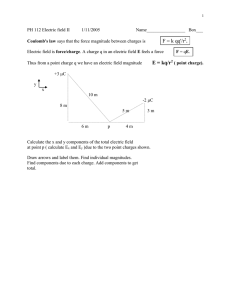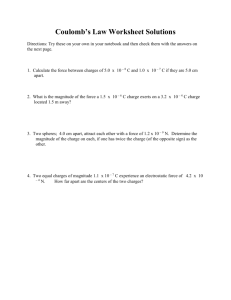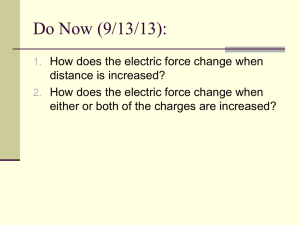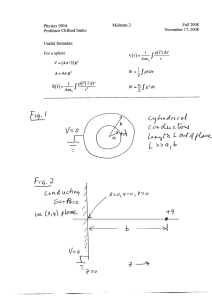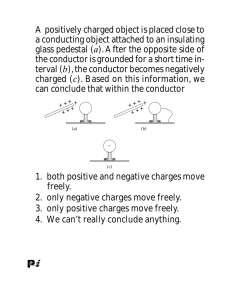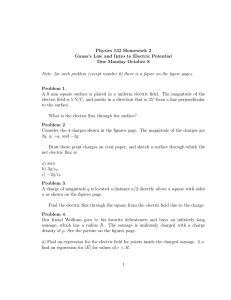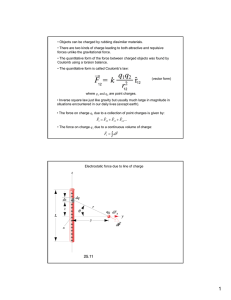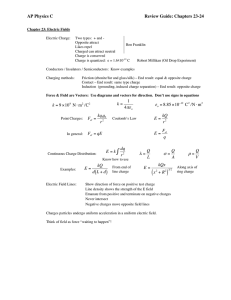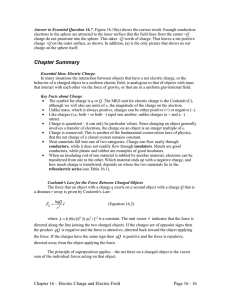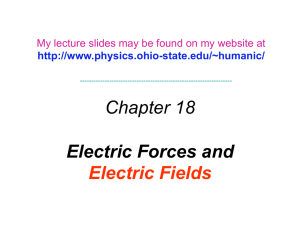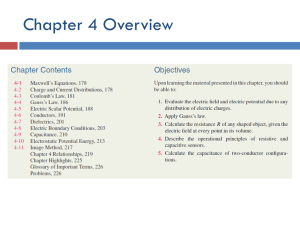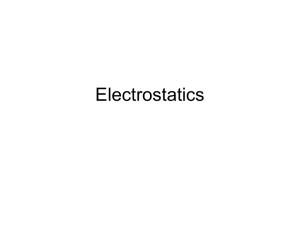Electric Fields in Physics: Presentation & Examples
advertisement
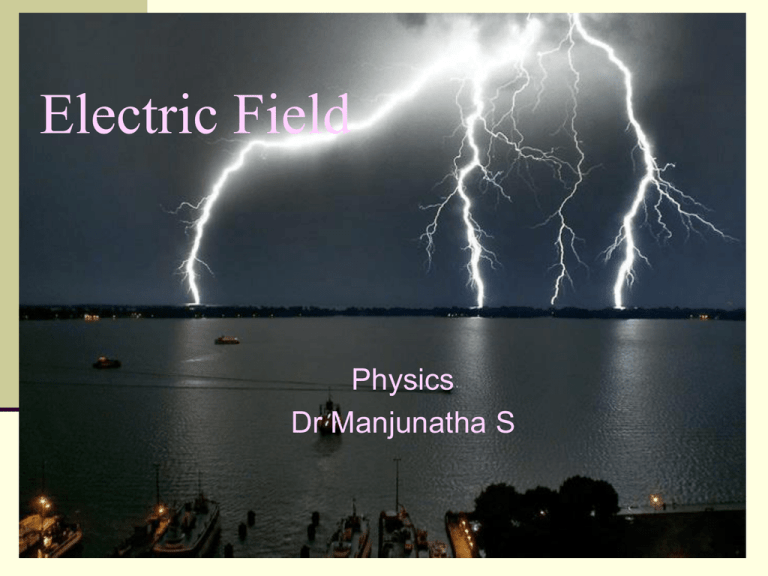
Electric Field Physics Dr Manjunatha S Charles Coulomb French physicist (1736–1806) Analogy The electric field is the space around an electrical charge just like a gravitational field is the space around a mass. Electric field The electric field can be defined as the region of the space in which a charged body experience a force. Electric Field Space around a charge. What is the difference? Van de Graaff Generator Builds up static electric charges. Electric Field Vector, E E = F/ qo F is electrostatic force qo , positive test charge E is a vector quantity Unit: N/C E is analogous to the gravitational field, g, where g=F/m Example 1 A charge of 3µC is used to test the electric field of a central charge of 6C that causes a force of 800N. What is the magnitude of the electric field? Answer: 2.7 x108 N/C Electric Field Lines Electric Field Lines of two Positive Charges Electric Field Lines (Electric lines of force) Electric line of force is an imaginary line in the electric field, along which a unit positive charge would tend to move freely to do so. Lines that indicate the strength and direction of the electric field. The more dense the lines, the stronger the field. Electric field vectors are tangent to the curve. Conductors and Electric Fields (under electrostatic conditions) “The electric field is zero inside a charged conductor”. “Excess charge on an isolated conductor resides on the surface”. “Excess charge accumulates on sharp points”. Electric field lines meet the conductor perpendicular to the surface of the conductor. Where are you safe during a thunderstorm? A) In a car or A) Outdoors Why can you not get radio reception in a tunnel or in a steel bridge? Which field is stronger? A B Electric Field for a Point Charge Using E=F/qo and Coulomb’s Law prove: E=k Q ______ r2 where Q is the central charge. Example 2 A test charge of +3µC is located 5m to the east of a -4µC charge. A) Find the electric force felt by the test charge. B) Find the electric field at that location. Answer: 4.32x10-3 N, 1.44 x 103 N/C along the –x axis. Example 3 If a test charge is moved to a location three times as far as its original location, how does the electric field change? Example: 4 Two equal positive charges, each of 2 µC interact with a third positive charge of 3 µC situated is as shown in the figure. Calculate the magnitude and direction of the force on the 3 µC charge. Ans: 3.456x10-3 N Example: 5 A water particle of mass 10 mg and having a charge of 1.5x10-6 C stays suspended in a room. What is the magnitude of electric field in the room? What is its direction? (F = q E =mg) Ans : E=65.3 N/C Example: 6 Calculate the electric field felt by a test charge located half way between a charge of +1C and a charge of -3C, that are 2m apart. Answer: 1.8 x 1010 N/C Example 7 A charged particle has a mass 10-16 carries a charge of 4.9 Χ 10 -19 C. Calculate the intensity of electric field to be applied on it in vertical direction so as to keep it at rest. Answer : 2000N C -1 Example 8 Two point charges 5 μ C and 8μC are kept at a distance of 0.4 m form each other find the field midway between them. Answer: 6.75Χ 105 N / C Example 9 The force experienced by a charge of 1μC is 2 Χ 10-3 N. when placed in a field. Find the intensity of electric field. Answer : 2000 N C-1
